Reading at Minchinhampton
Reading on a Page – Everything you need to know about reading at Minchinhampton Academy Fluency at Minchinhampton Class Reading Progression Class Reads Learning Journey 7 Top Tips for Supporting Reading at Home Supporting Readers at Home
EEF Blog: Shining a Spotlight on Reading Fluency
EEF Blog: Why Focus on Reading Fluency?
‘A world will come over you, the happiness, the abundance, the incomprehensible immensity of the world. Live a while in these books, learn from them what seems to you worth learning, but above all love them. this love will be repaid you a thousand and a thousand times, and however your life may turn- it will, I am certain of it, run through the fabric of your growth as one of the most important threads of your experience, disappointments and joys.’ –Rainer Maria Rilke
Reading is a priority. Please read Mr Moss’s letter to parents about reading.
Reading in Reception and KS1 Core Book List – all year groups CLPE Reflecting Reality 2024 Working together – our reading offerLove of Books
Love of Reading
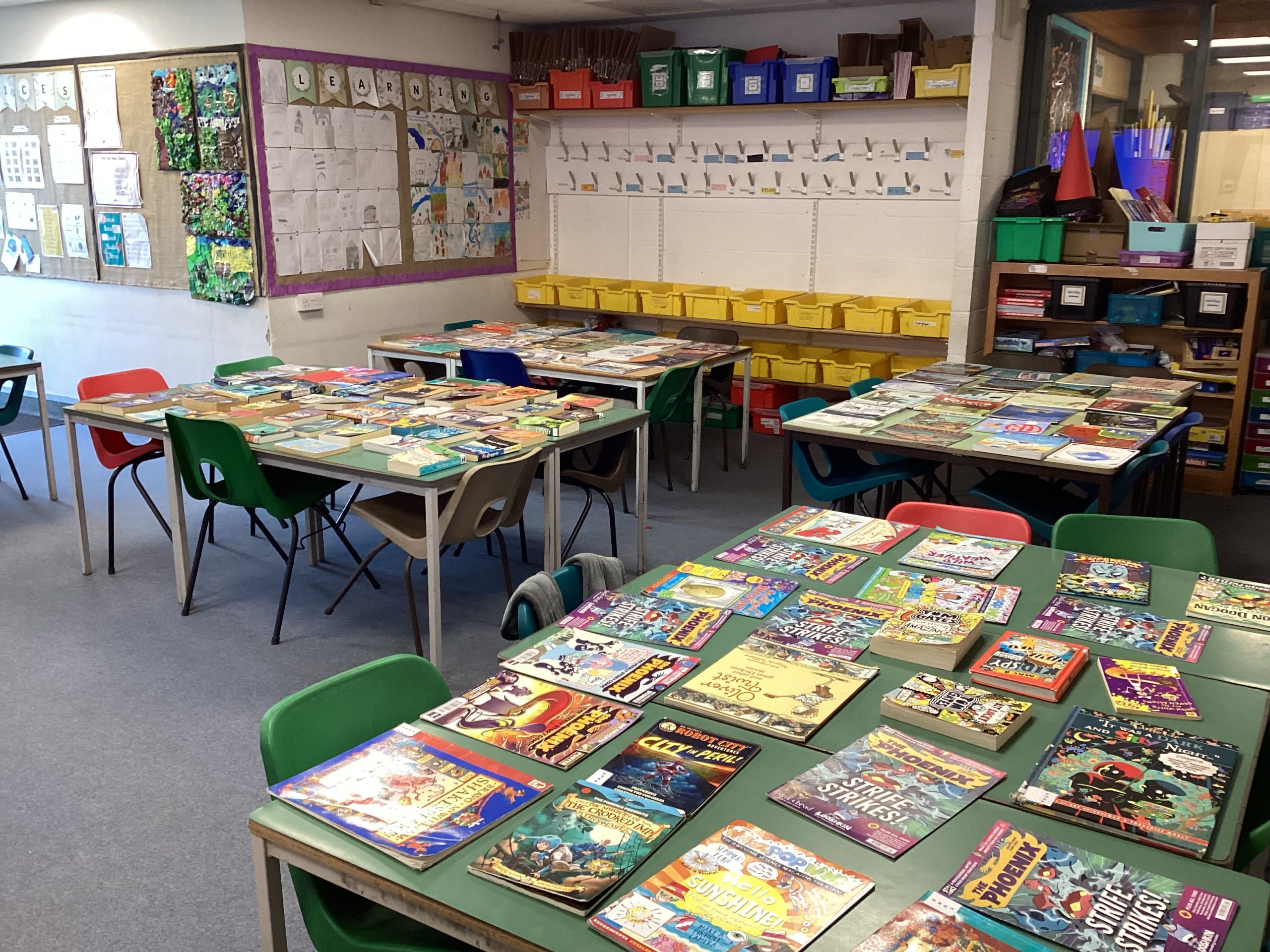
Y5/6 Exploring reading genres
“To learn to read is to light a fire; every syllable that is spelled out is a spark.” -Victor Hugo
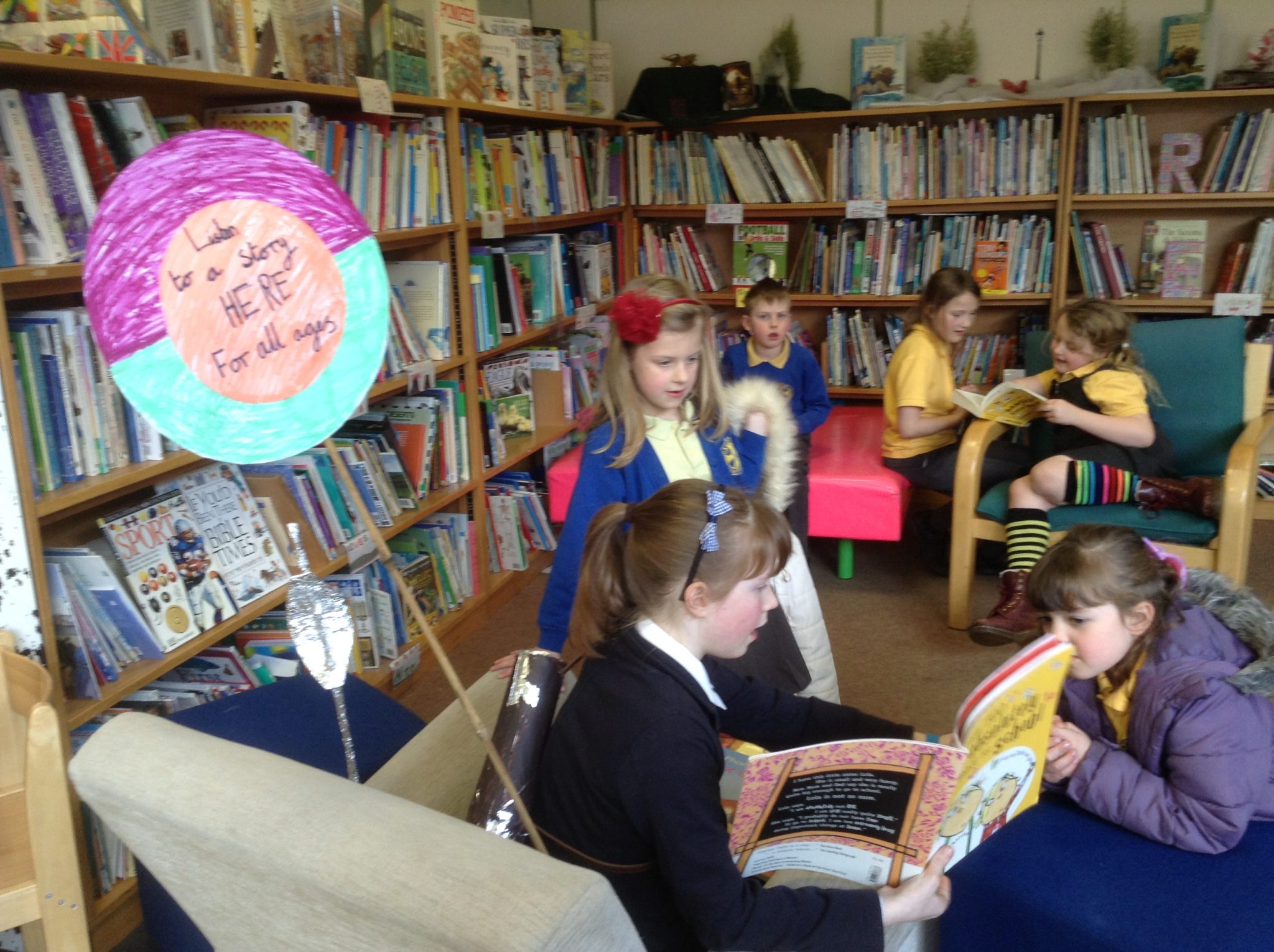
“Books crowbar the world open for you.” – Katherine Rundell
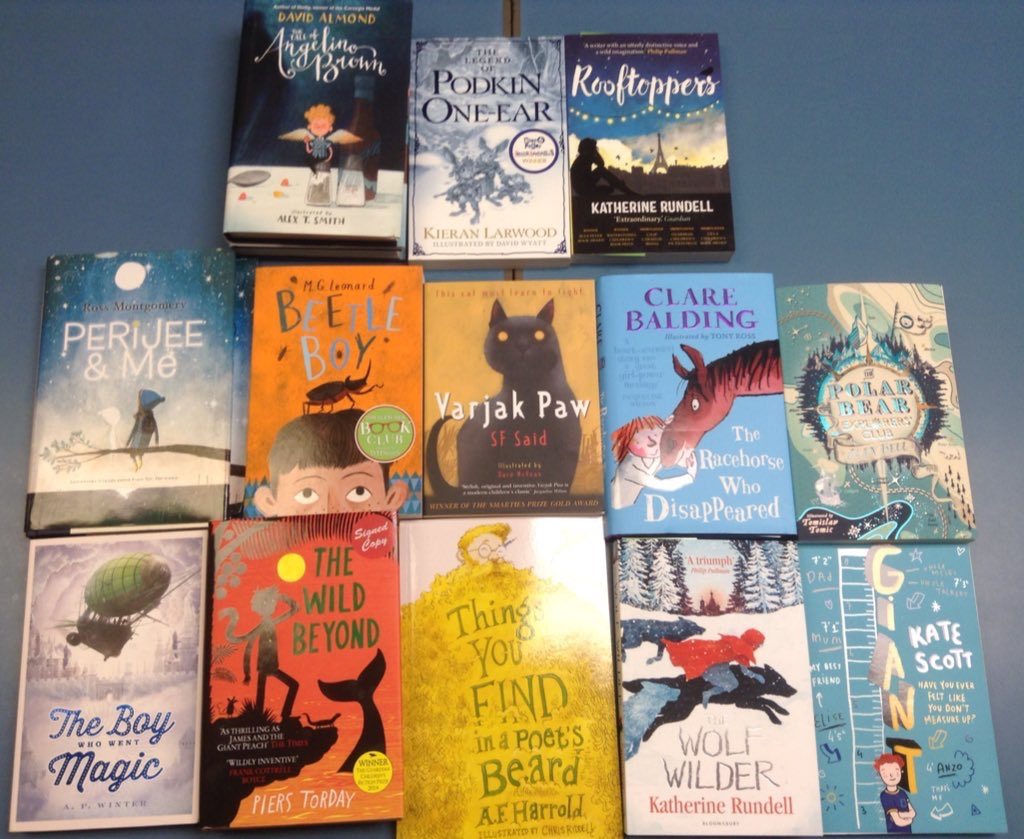
“Reading is the key that opens doors to many good things in life. Reading shaped my dreams, and more reading helped me make my dreams come true.” – Ruth Bader Ginsberg
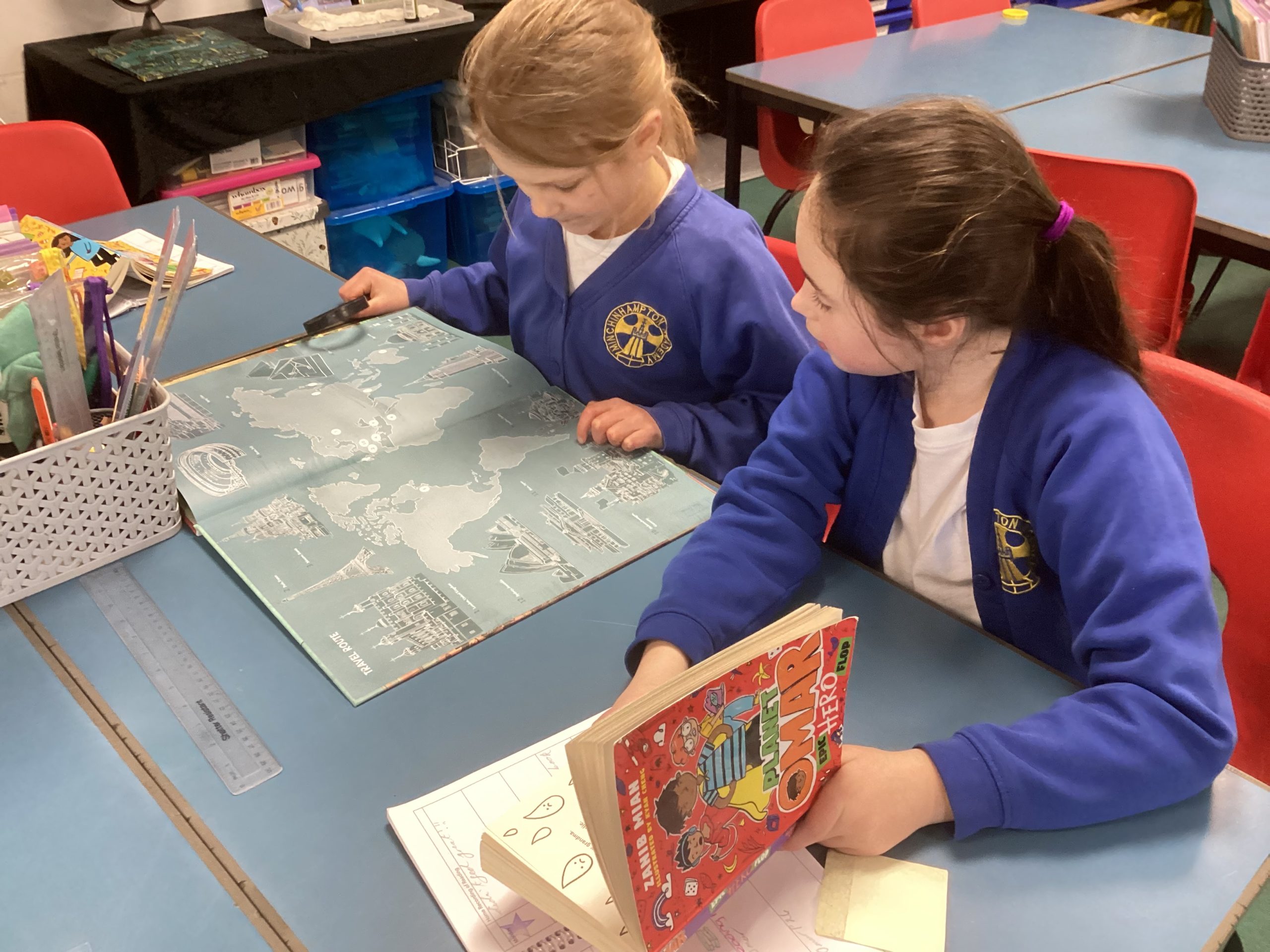
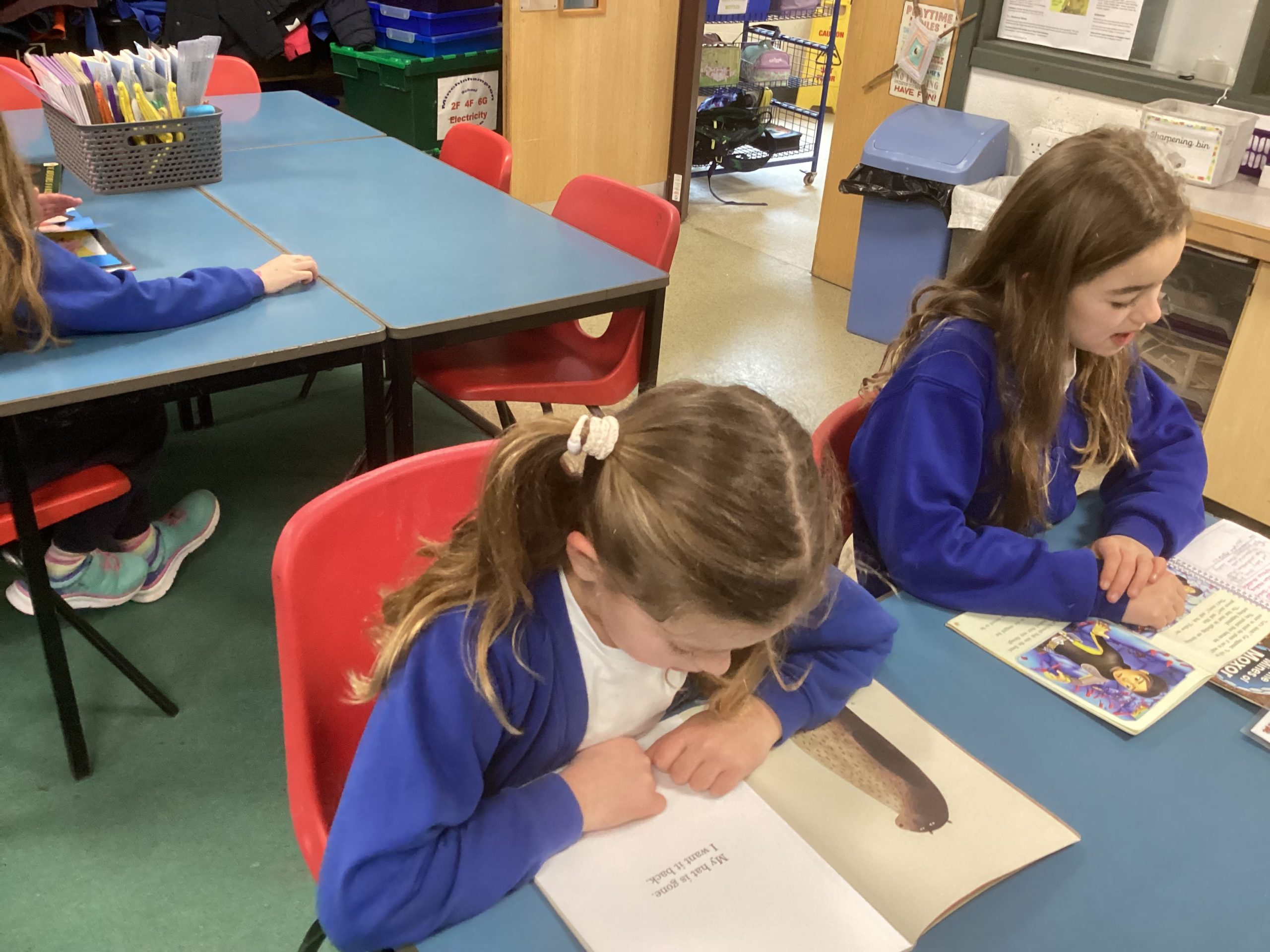
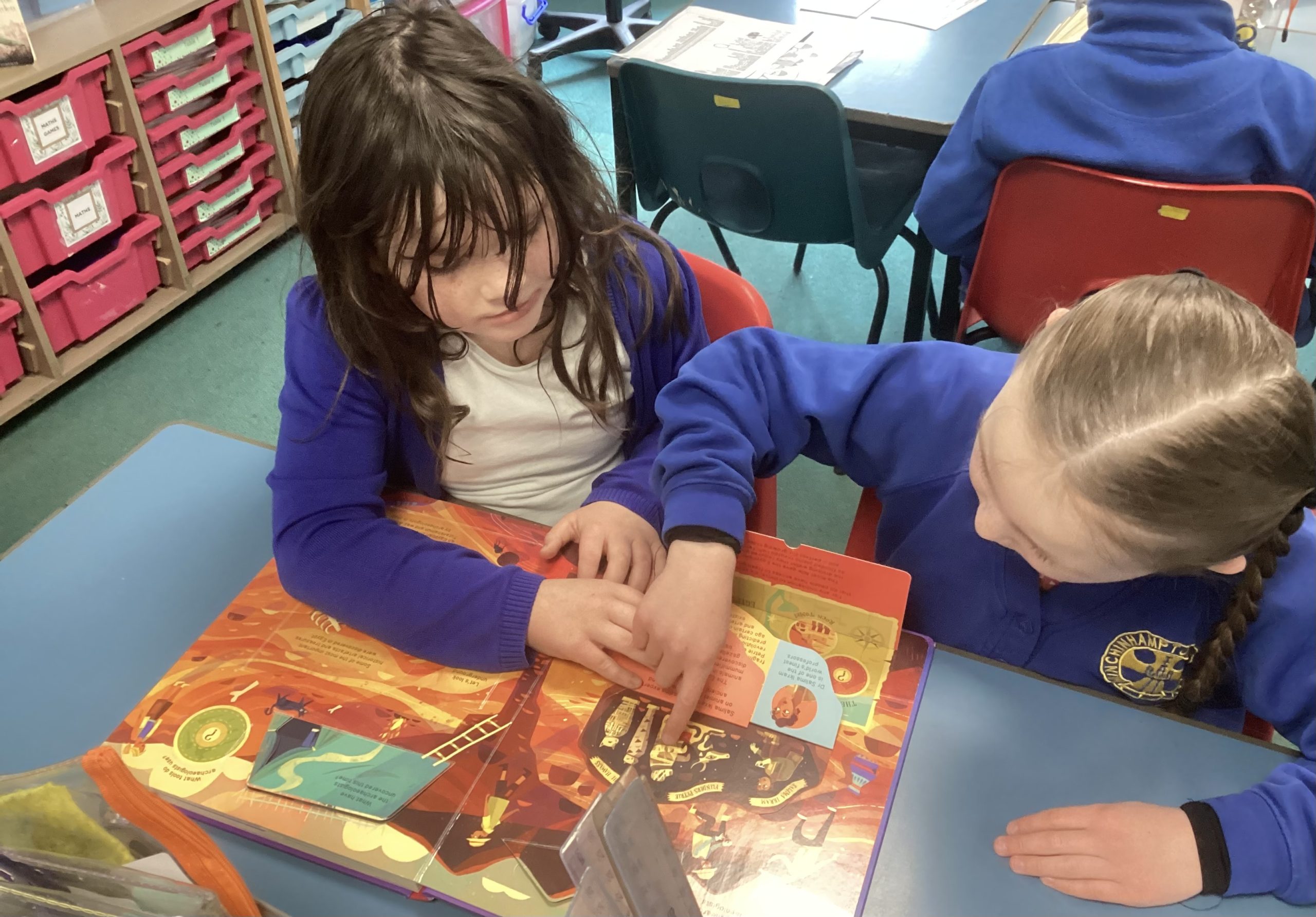
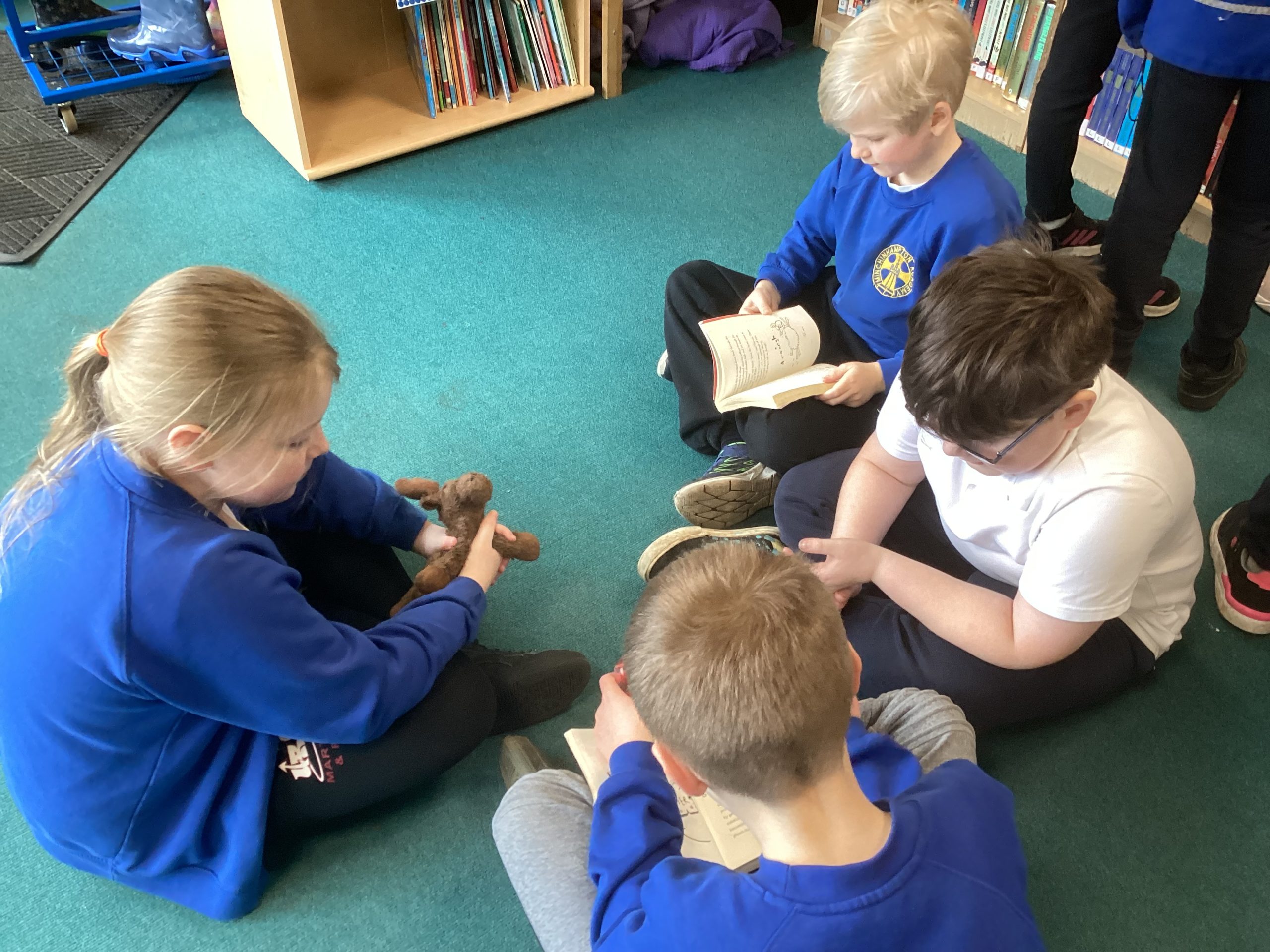
‘The reading environment reflects very clearly the value you place on the importance of reading for pleasure and developing lifelong readers with all the benefits this brings. Your school library is central to the school and the way in which this is utilised will ensure your pupils enjoy reading and see themselves as readers regardless of their starting points. Your pupils are obviously your greatest assets and they spoke with such confidence and passion about the books they had read and the sequences of work that they have enjoyed. To have children speak like this to someone they have never met is testament to your hard work.’ CLPE report 2019
‘A large-scale study conducted by the Yale University School of Public Health found that people who read books for at least 30 minutes a day lived, on average, nearly two years longer than nonreaders.’
‘When I read great literature, great drama, speeches, or sermons, I feel that the human mind has not achieved anything greater than the ability to share feelings and thoughts through language.’ – James Earl Jones
‘The human mind seems exquisitely tuned to understand and remember stories- so much so that psychologists sometimes refer to stories as psychologically privileged, in that stories are treated differently in the memory compared with other types of material.’ D Willingham, 2004
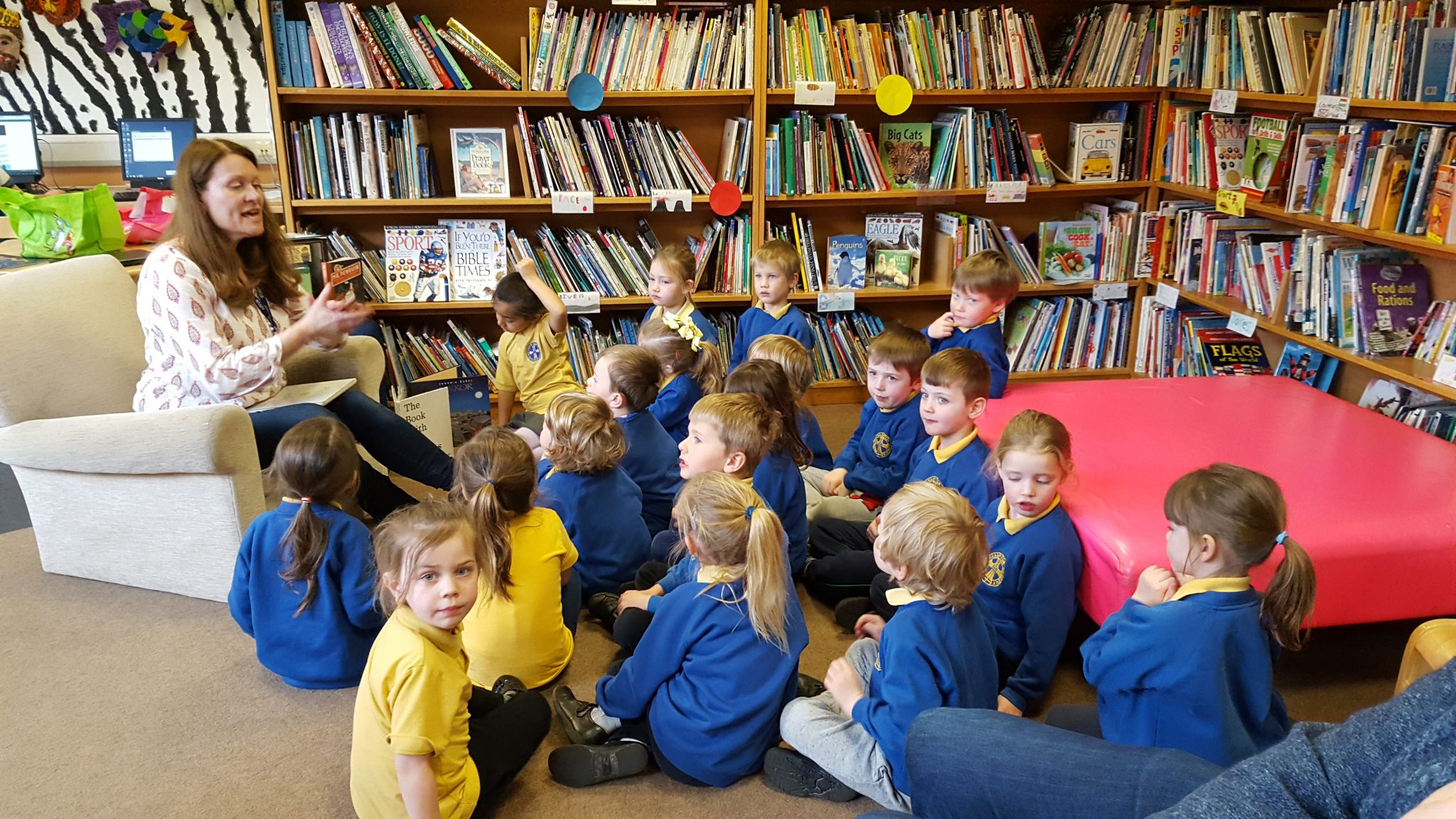
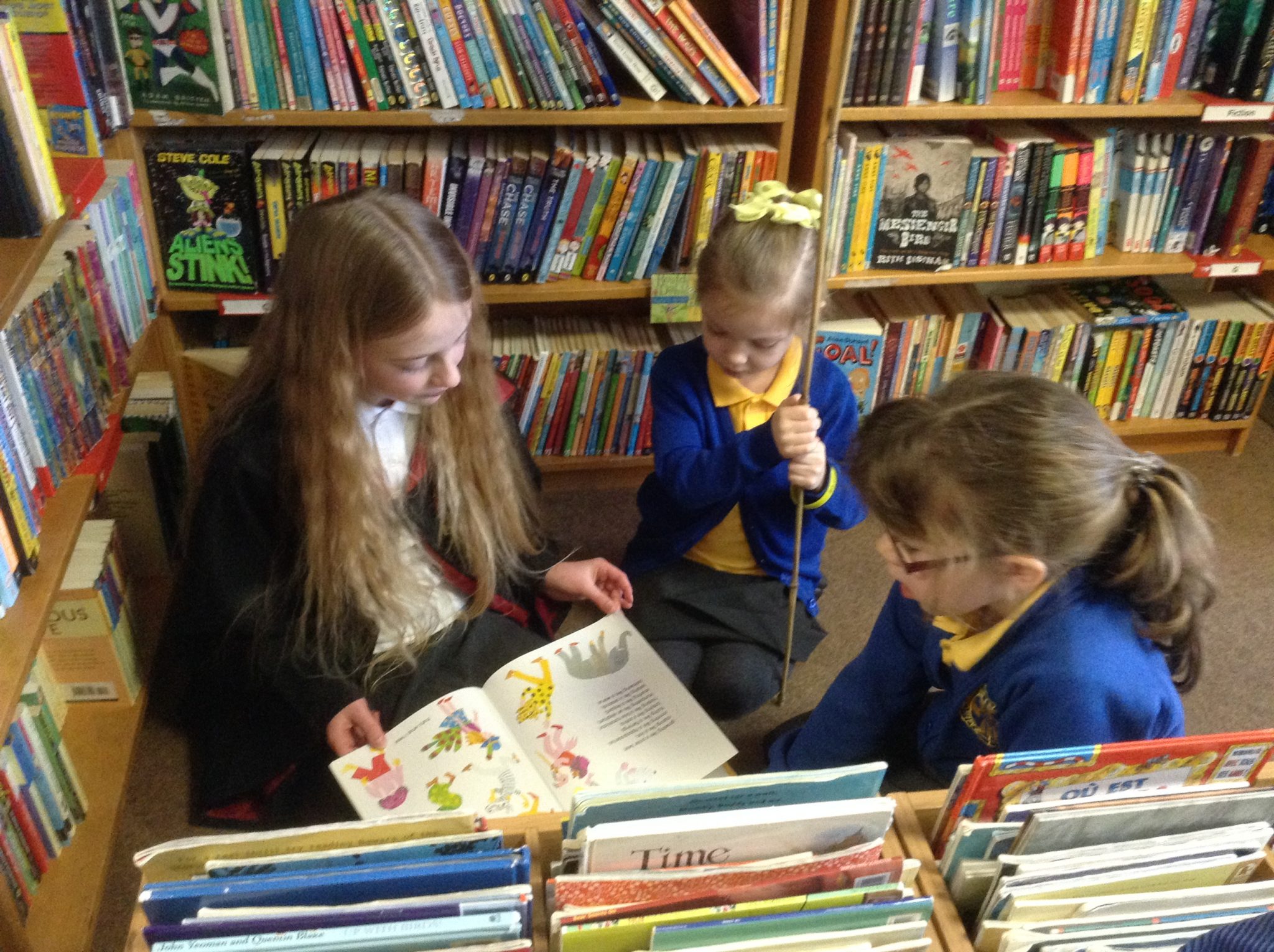
We have recently introduced and/or re-invigorated several methods for helping the children to develop good reading habits. We want our pupils to become experienced readers: that is young people who see themselves as readers; who are discerning about what they like; who are adventurous in their choice of reading material; are motivated to read widely and constantly. Our practice in school is constantly evolving as we search for the way to ensure we give the greatest number of pupils the best chance possible of developing these habits. We’re not there yet but you can assume we will not rest on our laurels.
The benefits of good reading habits are indisputable. As a head teacher, on a daily basis, I see evidence of the strong link between reading and engagement with school; between reading and learning; between reading and self-discipline; between reading and an interest in the world we live in and the people we encounter. One area of our practice we are looking to develop further is something we call ‘Book Talk, which has us drawing on the research of Aidan Chambers in his book ‘Tell me.’ I am sharing my thoughts on this with you now because you may find it useful for when you are talking about a book with your own children.
Aidan Chambers’ approach is effectively a method for encouraging a ‘growth mindset’ in readers. He calls anyone who always sticks to the same kind of book as flat-earthers (ie people displaying a fixed mindset). They avoid exploring the world of books predominantly because of fear: the fear of boredom, of difficulty and of exhaustion. Book Talk then is about encouraging pupils not just to talk but talk well about books and hence to break through that fear barrier. It is about encouraging the part that talk plays in the lives of discriminating, thoughtful, pleasure seeking readers. When Aidan Chambers and his colleagues carried out research into these kinds of readers- there emerged several common denominators. Firstly these readers were affected by other readers who they respected, about what these other readers thought of books and how they spoke about the books they had read. They were also affected by what they themselves said to others about books. One 8 year old called Sarah said, ‘We don’t know what we think about a book until we’ve talked about it.’ In other words the process of becoming an experienced reader is very often a social process: our talking about books gives us the energy, information and impetus to explore beyond.
Aidan Chambers listened closely to what went on when experienced readers talked about books. They discovered that even experienced readers often initially skirt around deep discussions about meaning until they had heard what their friends had to say about likes and dislikes. The starting point of most discussions are quite ‘surface level’ and meaning only gradually emerges from the conversation—it is discovered, negotiated, made and arrived at organically. We try to re-create this in Book Talk by avoiding asking the question, ‘Why’, and instead saying ‘Tell me..’ ‘Why’ is rather examinational and children end up trying to play ‘guess what is in the adult’s head’ rather than expressing their own thoughts. ‘Tell me’ on the other hand suggests a desire for collaboration and indicates the adult really does want to know what you think. It anticipates dialogue rather than interrogation. We then work hard as teachers to hold ourselves back; to keep as quiet as possible and so allow the pupils to develop their dialogue about the book naturally and without our intervention. In this respect Book Talk’ feels very much like Philosophy for Children but with a book. As with P4C it is particularly critical that each response is valued. This is about personal response to a book: there is no one answer and there is no one answer better than the next.
I hope you find some of this useful and some of you go forth reinvigorated to talk about books with your children.

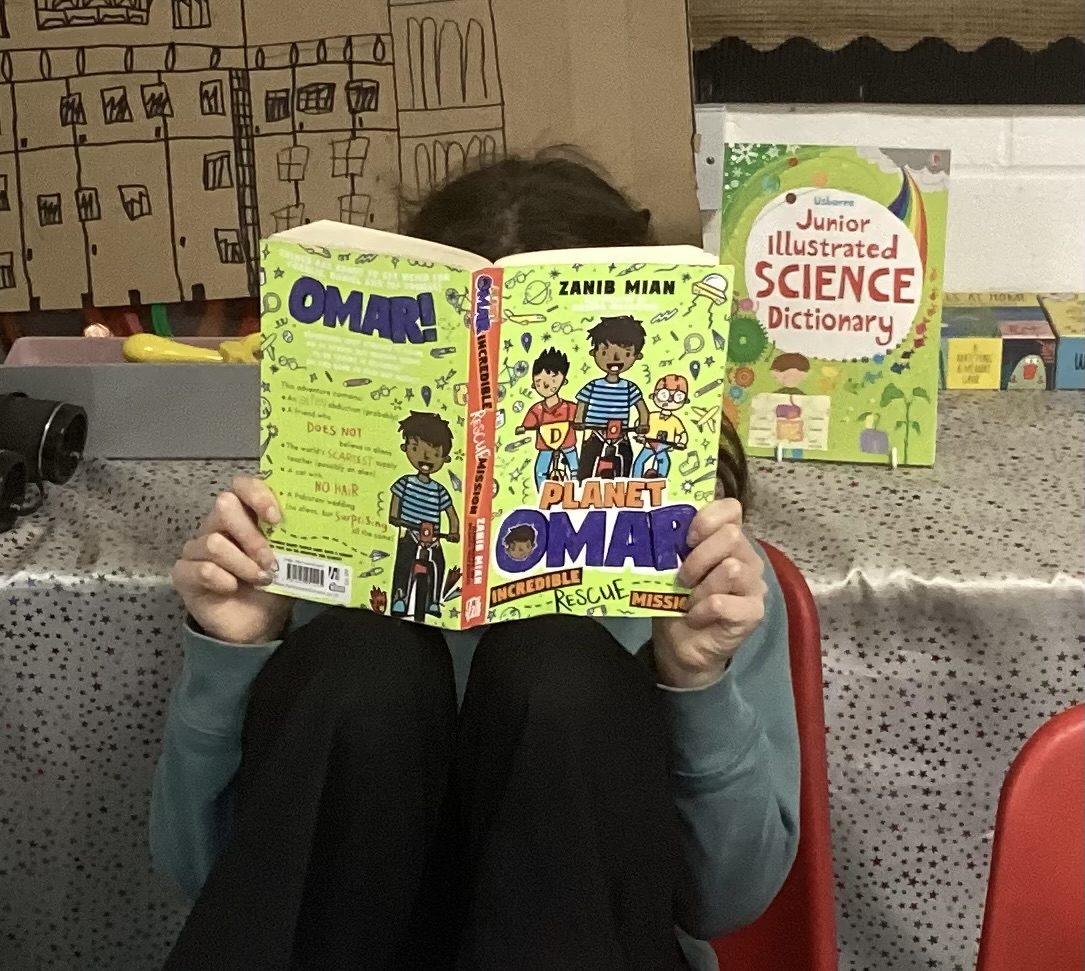
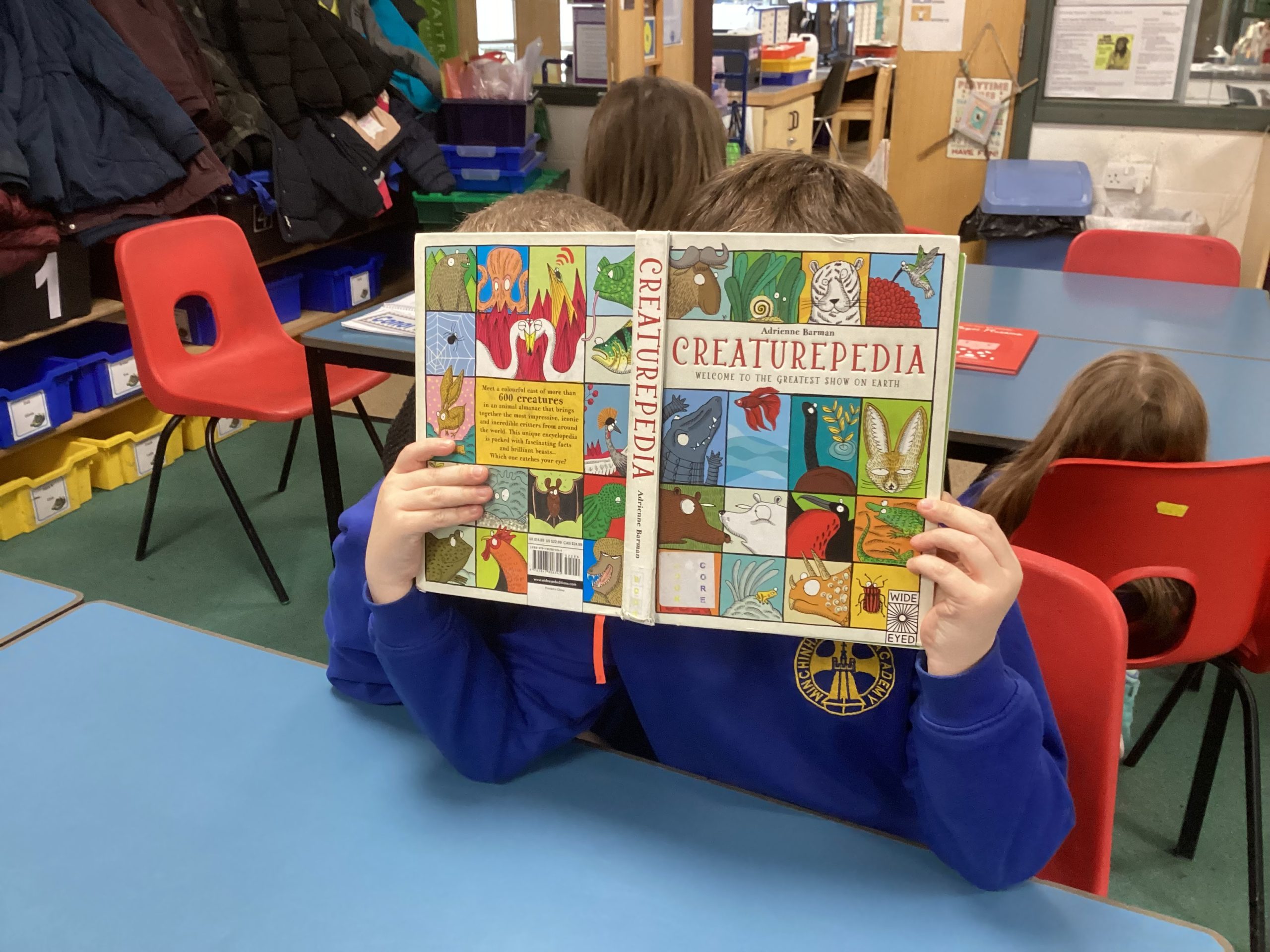
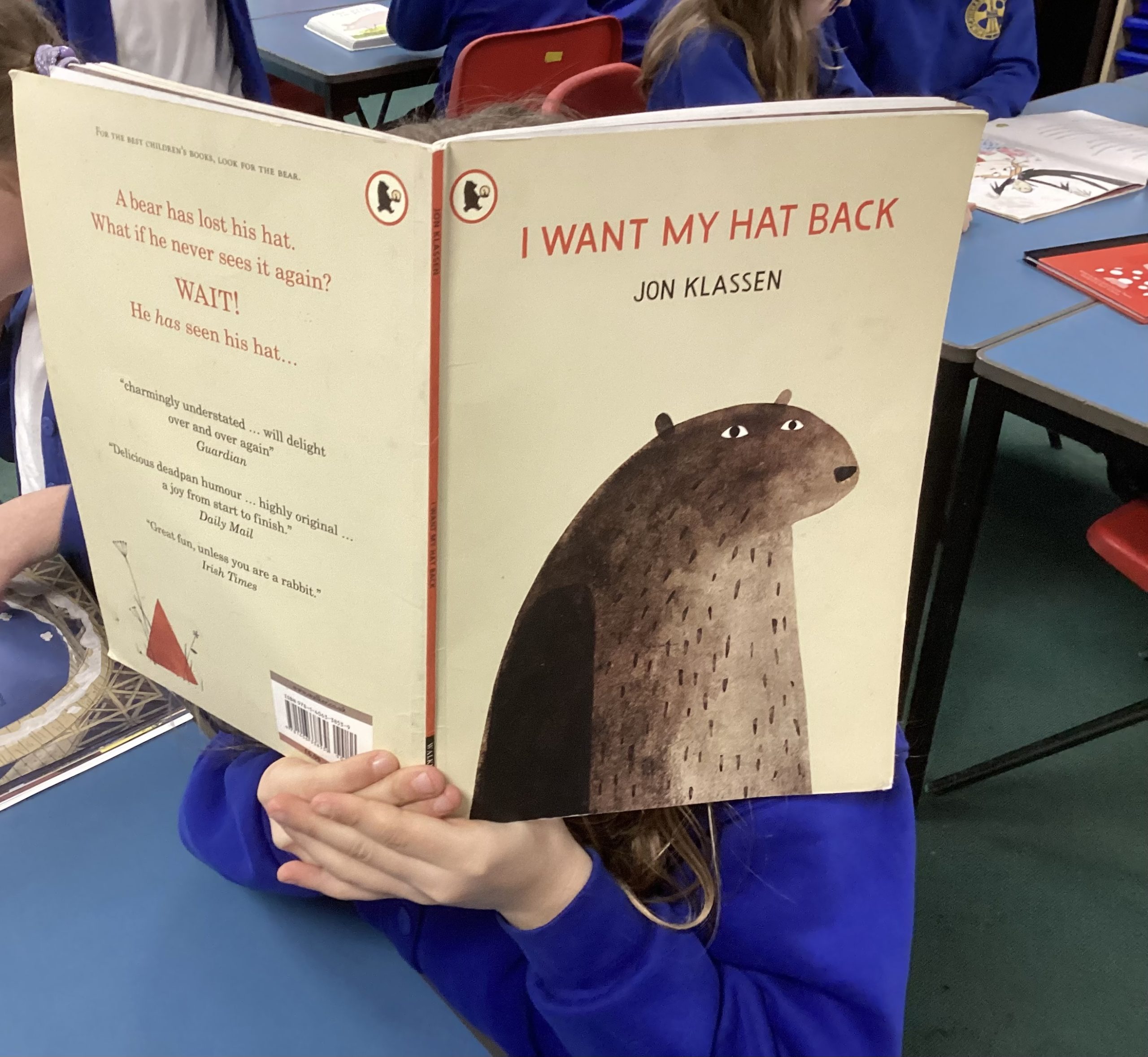
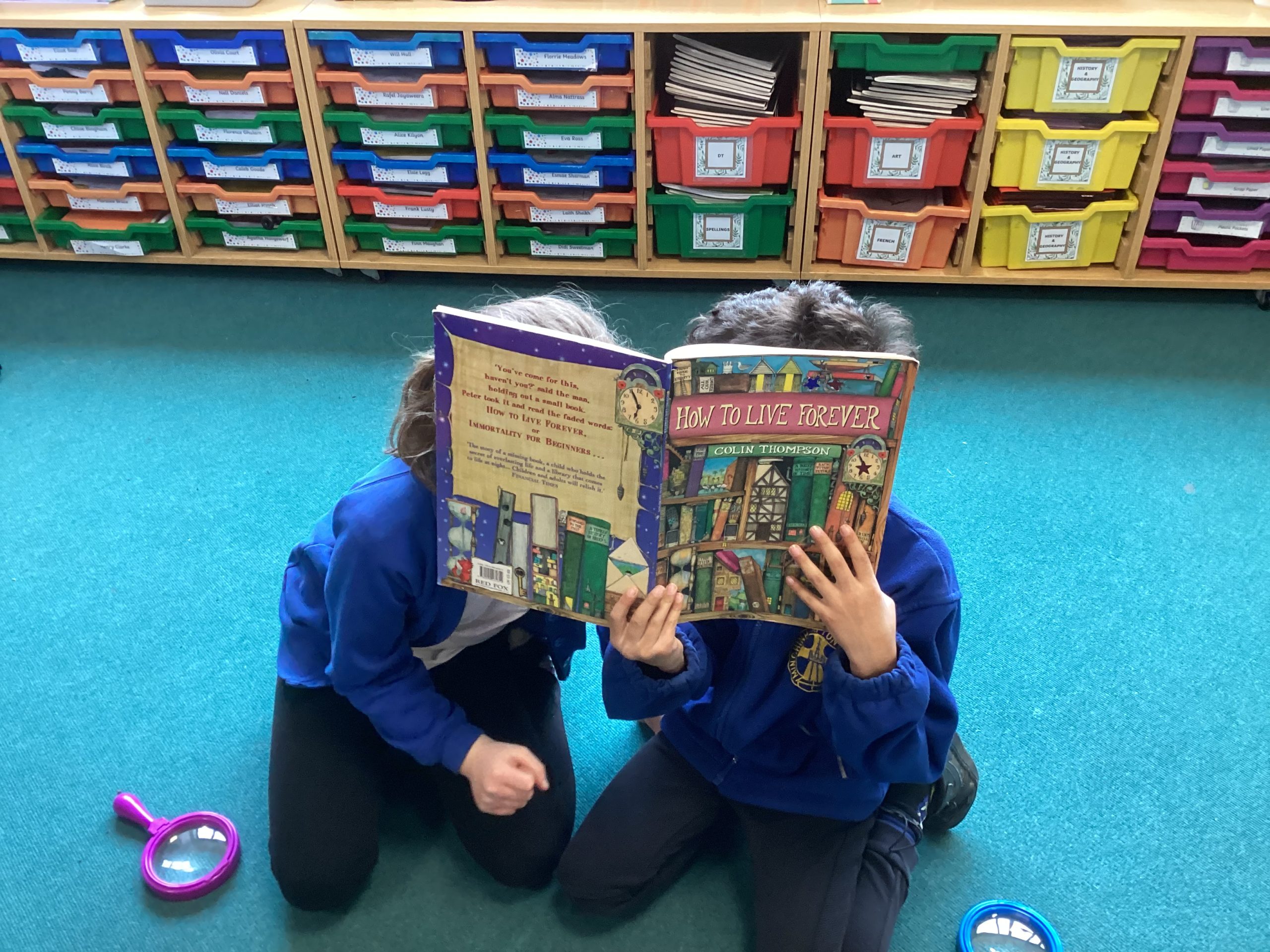
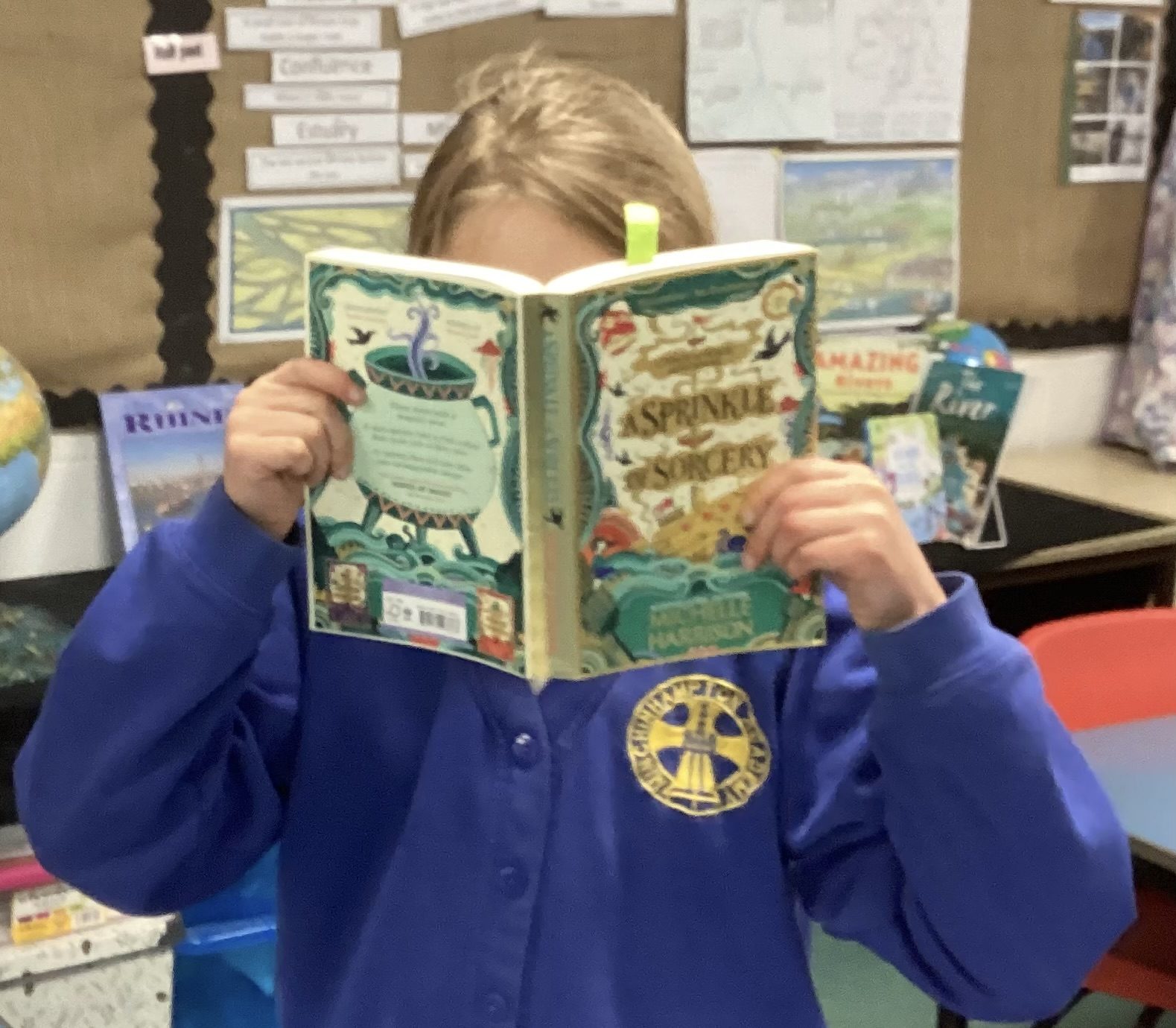
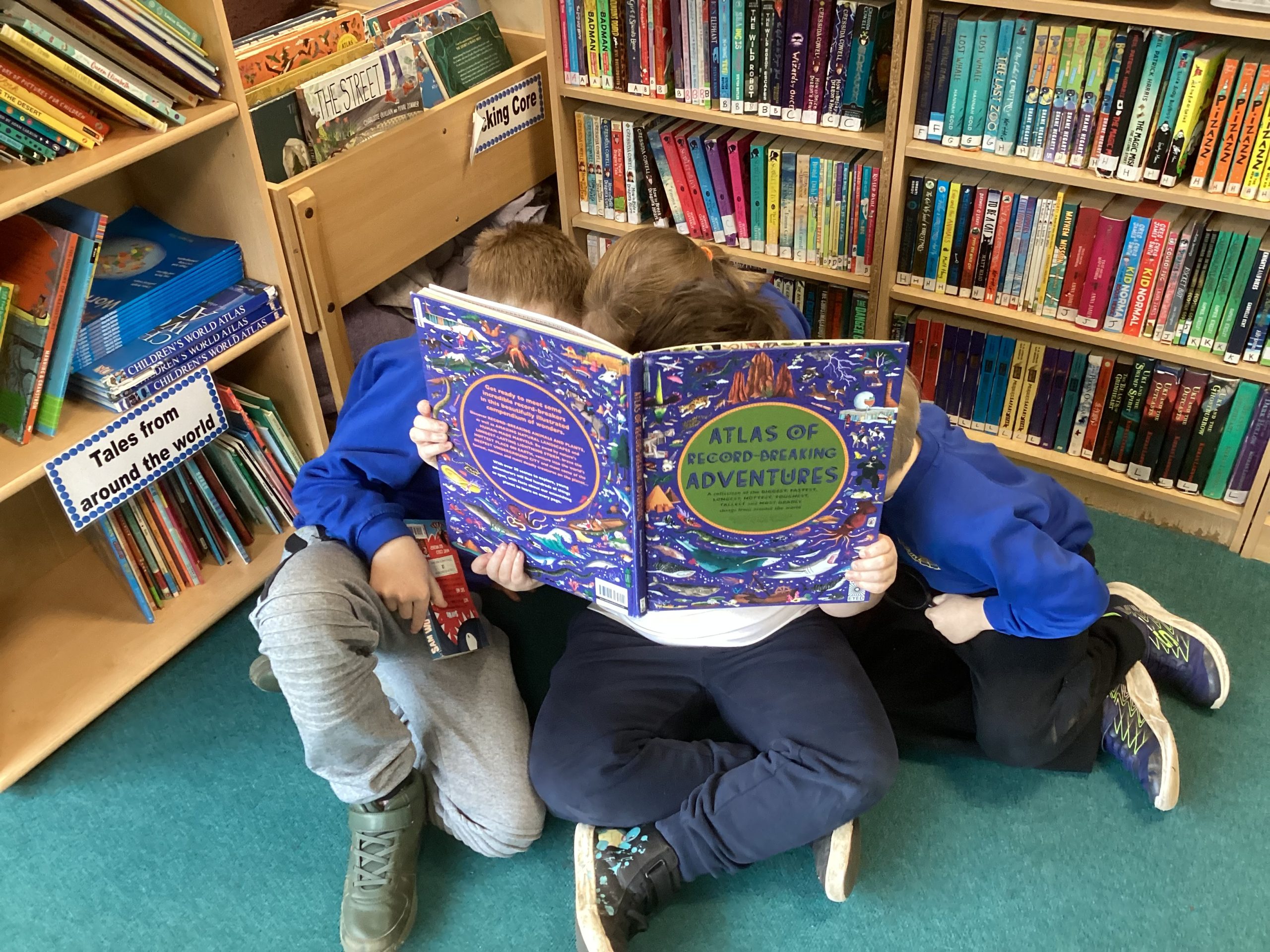
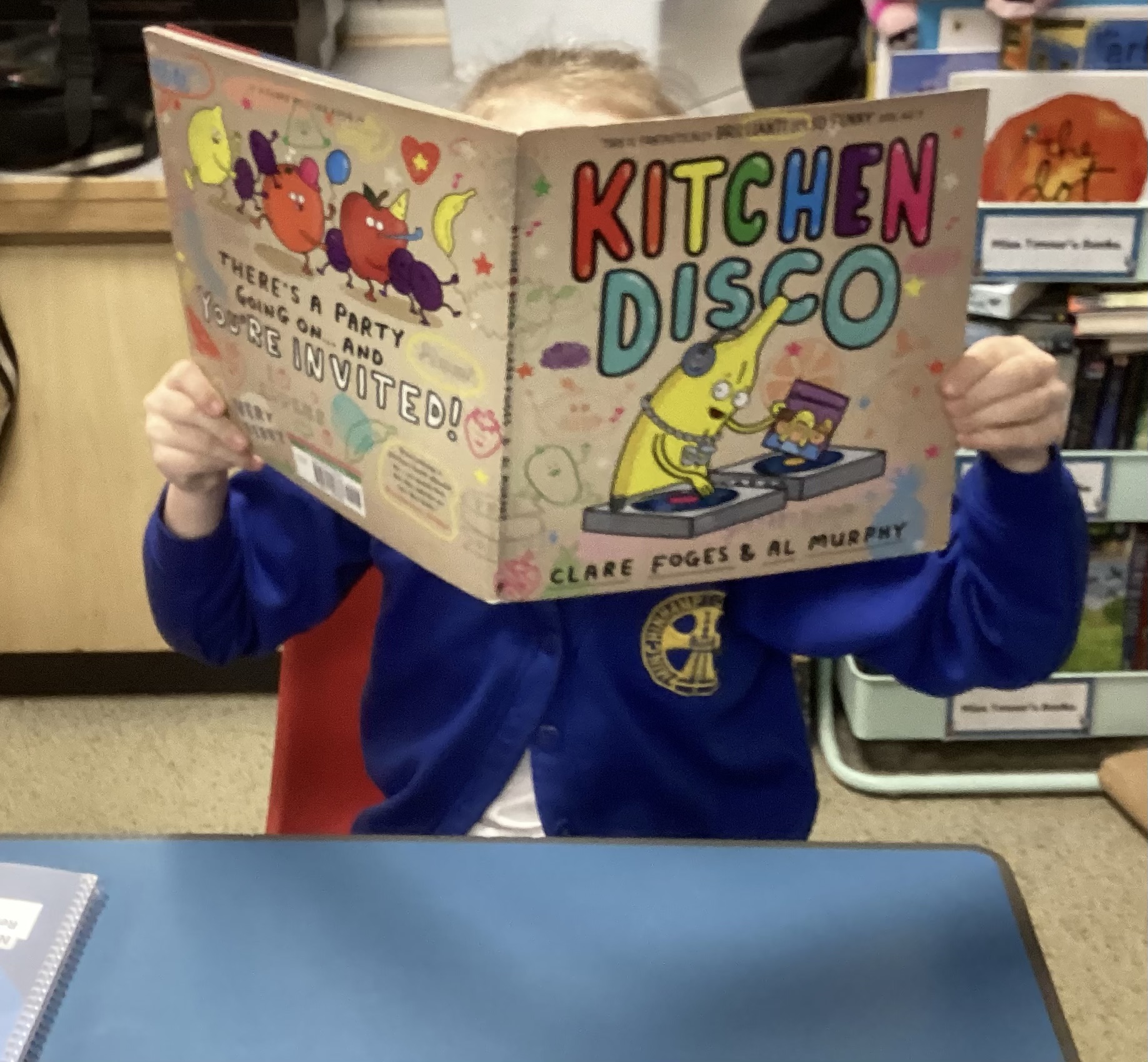
I have paraphrased here an internet article– ‘10 Reasons Why People Who Read A Lot Are More Likely To Be Successful;’ reliably trading in the word ‘successful’ for ‘successful learner.’ The article promotes that reading as much as possible is the pathway to success and fulfillment. Success is a little too loaded a term for me- it begins to sound like money sometimes – hence my switch to successful leaner and fulfillment which is most definitely what it is all about:-
-
-
- Reading means you have increased focus: ~Focus is important for being a successful learner. When you read a book avidly you simply cannot put it down. Successful learners feel the same way about any task they set out to do.
- Reading encourages the setting of goals:- -Readers set goals for themselves whenever they sit down with a good book. Whether setting out to read a specific amount of pages before moving on to another activity, or deciding to read until a certain concept is solidified in their mind, readers actively try to accomplish something whenever they open a text. Successful learners also set goals and continue working toward the goal until they surpass it.
- Reading encourages us to spend time wisely:- Successful learners view their time as incredibly valuable, and seize every opportunity they have to learn something new, or accomplish a goal. Using up spare minutes on reading is time well spent for learning.
- Readers develop a sense of perspective:- Reading helps you understand people and the world around you- it develops emotional intelligence and empathy and sense of perspective. Successful learners are able to see all angles of an issue, because they have read a variety of literature from various perspectives. Being an avid reader allows you to put yourself in someone else’s shoes, if only for a moment; but once that moment’s over, you remember the experience for the rest of your life.
- Reading helps you to become more reflective:- Readers are reflective about what they have read. While gaining perspective allows a person to see from the other side of the fence, being reflective allows them the opportunity to understand how they can be productive with their new-found perspective. Successful learners see reading not as the simple act of staring at words on a page. They understand the profound effect that consuming a text can have on the mind, and how books can change a person’s life.
- Reading helps your communication skill:- It’s no surprise that the greatest orators and writers in human history have all been enthusiastic about reading. Successful learners draw inspiration from their role models, and utilize this inspiration to further their cause.
- Reading increases memory:- The more you read and learn, the easier it becomes to retain information. Successful learners simply continue to learn, and commit an incredible expanse of knowledge to memory, sometimes without even realising it.
- Reading keeps you fresh:- Successful learners see the brain as a muscle that needs to be worked. Just like going to the gym every day keeps your arms and legs in shape, reading keeps your mind sharp and able to easily retain knowledge. Successful learners exercise their mind on a daily basis through reading and other methods such as crossword puzzles and brain teasers.
- Readers are educated and informed:- When successful learners pick up a book, they don’t do so just to finish it, but to take something away from it. Reading textbooks is never just a school assignment to be completed, but is a chance to expand their knowledge even further. While reading fictional novels, successful learners take with them life lessons that they carry with them forever.
- Reading is relaxing:- Everyone needs to tune out the world every once in a while. There is nothing wrong with reading a “trashy magazine” or graphic novel to unwind. Reading just about anything is more beneficial than watching television or computer games. There’s no better way to chill out while keeping yourself fresh than with a good book.
-
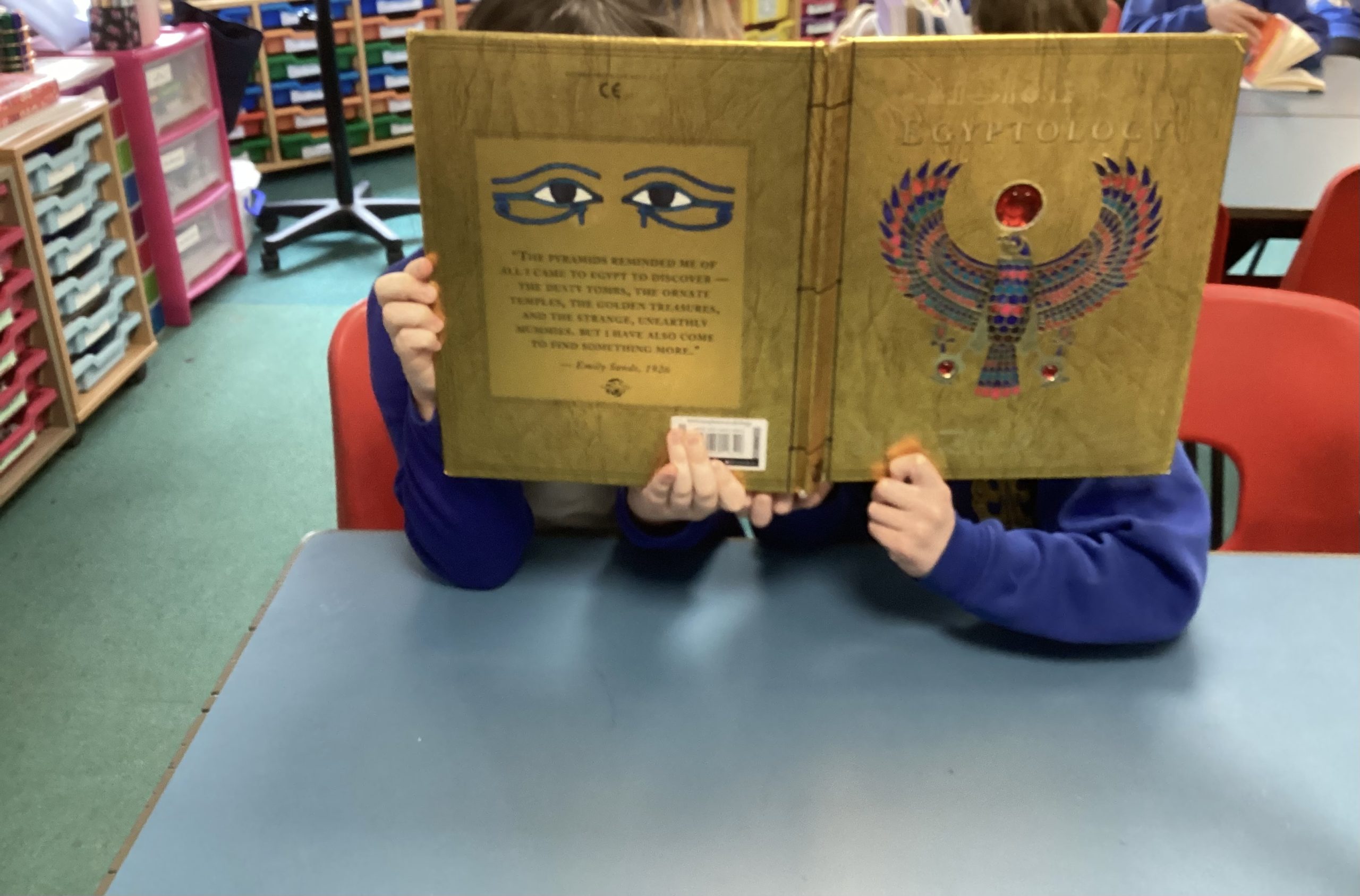
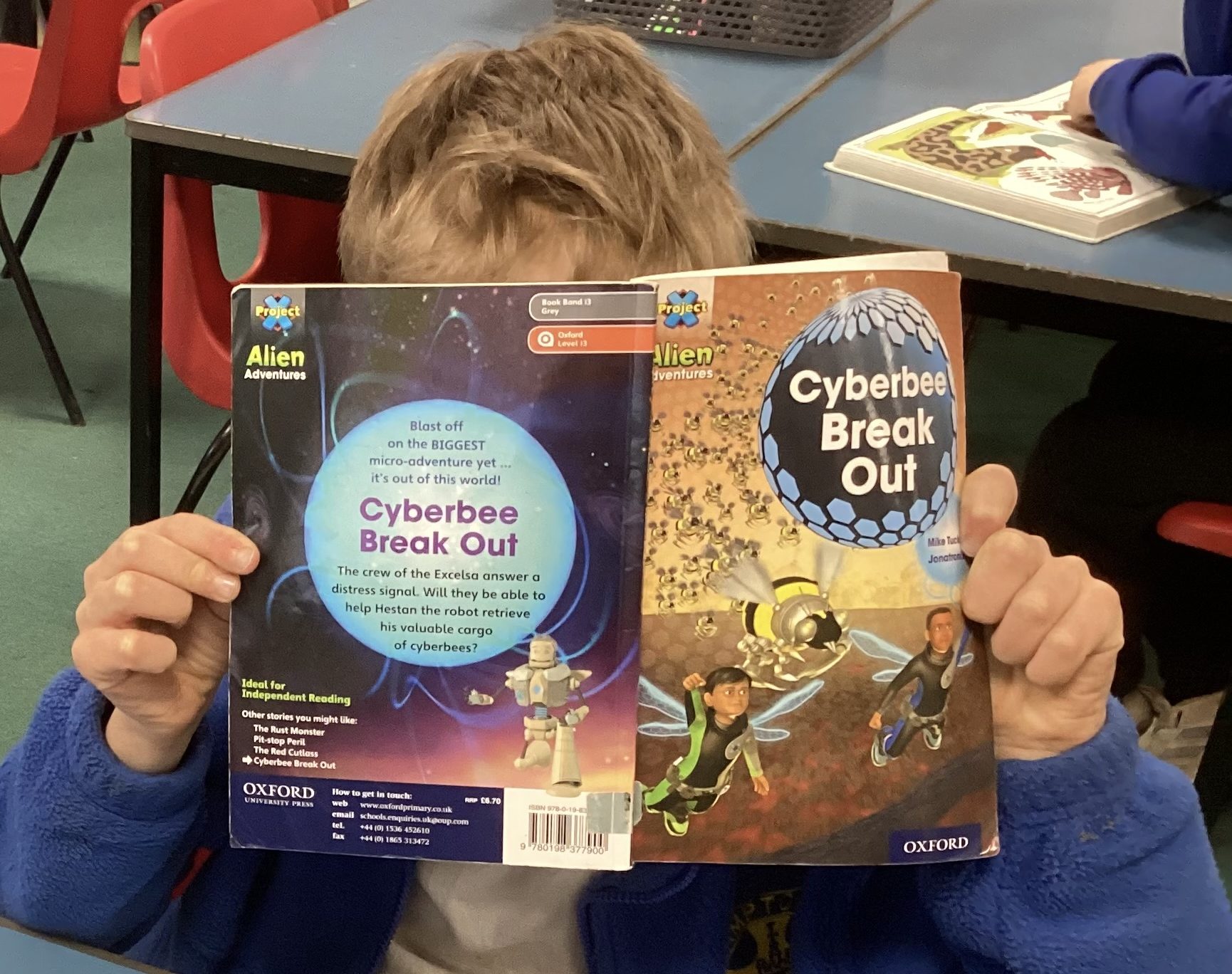
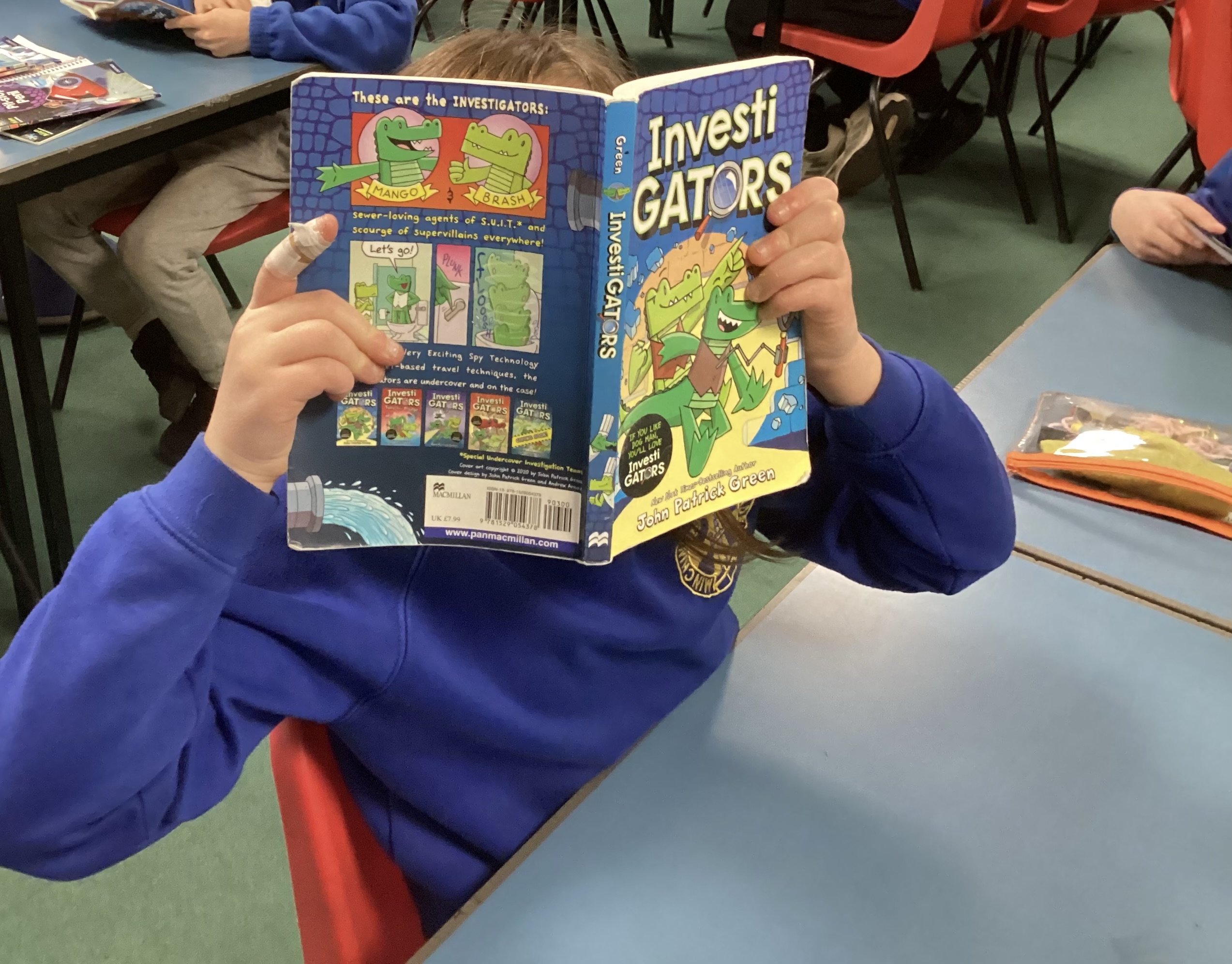
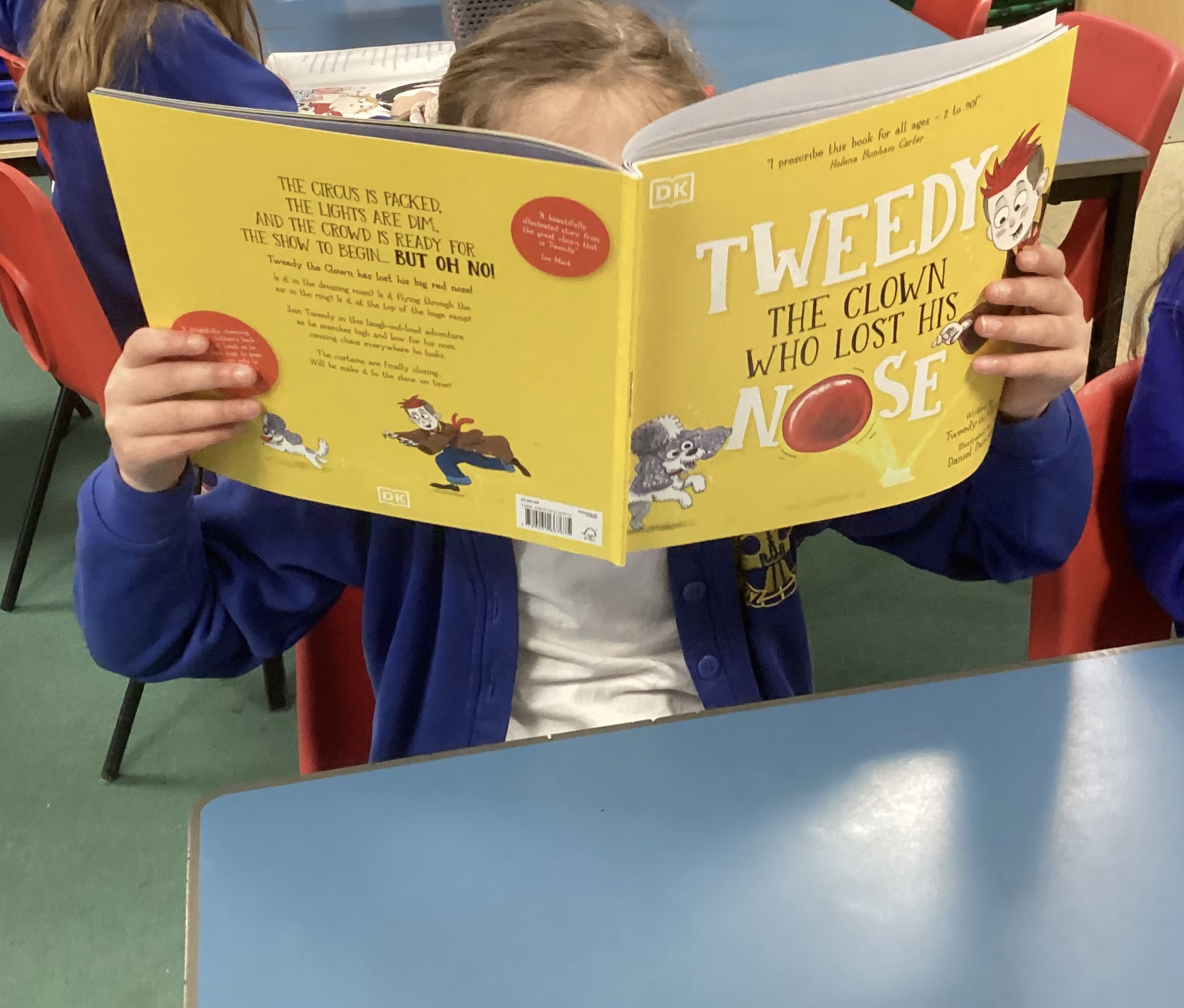
Creating a life-long love of reading and books at Minchinhampton Academy is our aim for every child who walks through our doors. It is our belief that every child should want to read for pleasure, not only while they are with us, but beyond the school gates and into adulthood. We want to open up a treasure trove of wonder and joy for curious young minds. Of course every child needs to be given the tools to develop into an enthusiastic and confident reader. Reading improves language and vocabulary, inspires imagination and gives everyone the opportunity to develop and foster new interests.
Teachers nurture a love of books by placing reading at the centre of the curriculum, introducing new texts with enthusiasm and enjoyment, promoting a sense of wonder and expectation as the text is explored. The children at Minchinhampton Academy have access to a wide variety of high quality texts in dedicated class book corners. All teachers use quality texts in all aspects of their teaching across the curriculum and provide opportunities that extend and enrich the children’s learning. It is these tools and opportunities that we believe give our children the necessary skills to become thoughtful and and confident readers for life, which helps them in everything they do. We, as teachers, know this to be true as we have also been on this journey and are now passionate advocates for reading for pleasure. We know how life changing this can be and want it for all of our pupils.
Book Chat Guide Reading for Pleasure The Book of Hopes: Words and Pictures to Comfort, Inspire and Entertain Children Discovering Children’s Books – Creative Activities The Reader Teacher – website with recommended reading for all year groupsWhat our pupils say:
“We have been reading Podkin One-Ear in class and it is so good; I love the bits where the writer describes the sounds being made. The ending was great when Podkin fought Scramashank and chopped his leg off! The very last page was a shock when we found out who the bard was!”
“The best thing this year for me has been being able to read even more Michael Morpurgo books – I have collected so many more words for my writing from his books.”
“When we went to the Cheltenham Literature Festival I enjoyed listening to the authors explaining how they made their books. I liked WOW by Tim Hopgood the most.”
“On Tuesday this week Sky class were lucky enough to have a library session with Mrs Webb, who kindly set up a mobile bookshelf to share with us! Mrs Webb told us a lot about some of the books in our school library, like poetry books, picture books and also a book that you could make up your own stories with. One of the books Mrs Webb showed us was ‘The Spider and the Fly.’ She talked to us about how the black and white illustrations helped with the spooky feeling of the poem, as well as the fly wallpaper and the furniture made out of dead flies! We also looked at the books ‘No Ballet Shoes for Syria,’ ‘Hate That Cat,’ ‘Granny Torrelli Makes Soup,’ ‘Wikd Boy,’ ‘Wonder,’ ‘The Boy at the Back of the Class,’ ‘Twelve Minutes to Midnight,’ ‘The Umbrella Mouse’ and much more.”
“This year I’ve found my new favourite book- it’s called Holes its by Louis Sachire It’s about a boy who gets sent to a juvenile correction camp where all he does is dig holes but then he finds the founder of the camp has a secret and he’s going to find it out. My favourite class book this year has been The Day I was Erased because it’s funny and has a lot of mystery which are my two favourite things in books.”
“I have been reading the His Dark Materials trilogy ( ten out of ten), The Murderer’s Ape (ten of ten) and the Princess Diaries series (infinity out of ten). I like action-packed books and love stories. I have enjoyed our class reads, and I particularly enjoyed Journey to the River Sea. However, I didn’t like The Man who Planted Trees for I felt it had no real story. My teacher Mr Weinberger is very good at choosing and recommending books.”
“In English, we are looking at ‘The Jabberwocky’ by Lewis Carroll. We have been looking at portmanteau words (frabjous) that he puts in and the nonsense words he has invented (outgrabe) It has been very silly but so interesting. I would rate it 5 stars!”
“At the Cheltenham Literature Festival I liked seeing the author who wrote The Storm Whale. It was good that he showed us how to do the illustrations.”
“I’ve loved reading dragon books— they’re intense when the main characters find a dragon. I like the Podkin series too. In class I liked The Boy Who Was Erased—it was emotional; Journey to the River Sea has made me feel like I’m there with Maia but she can’t see me; I like the poems Mr W reads at reading time. I want to read some Artemis Fowl books and the rest of the Secret Seven. I enjoyed writing about Maia from Journey to the River Sea, and the warning story I wrote.”
“I think I’ve shown love of learning this year and enthusiasm too. In my learning journal I’ve enjoyed thinking more about the stories we’ve been reading in class.”
“We have been reading Podkin One-Ear in class and it is so good; I love the bits where the writer describes the sounds being made. The ending was great when Podkin fought Scramashank and chopped his leg off! The very last page was a shock when we found out who the bard was!”
“The best thing this year for me has been being able to read even more Michael Morpurgo books – I have collected so many more words for my writing from his books.”
“When we went to the Cheltenham Literature Festival I enjoyed listening to the authors explaining how they made their books. I liked WOW by Tim Hopgood the most.”
“On Tuesday this week Sky class were lucky enough to have a library session with Mrs Webb, who kindly set up a mobile bookshelf to share with us! Mrs Webb told us a lot about some of the books in our school library, like poetry books, picture books and also a book that you could make up your own stories with. One of the books Mrs Webb showed us was ‘The Spider and the Fly.’ She talked to us about how the black and white illustrations helped with the spooky feeling of the poem, as well as the fly wallpaper and the furniture made out of dead flies! We also looked at the books ‘No Ballet Shoes for Syria,’ ‘Hate That Cat,’ ‘Granny Torrelli Makes Soup,’ ‘Wikd Boy,’ ‘Wonder,’ ‘The Boy at the Back of the Class,’ ‘Twelve Minutes to Midnight,’ ‘The Umbrella Mouse’ and much more.”
“The genres we looked at included magic, adventure, humour, poetry and many more. Lots of people at the end of the session borrowed some books.”

